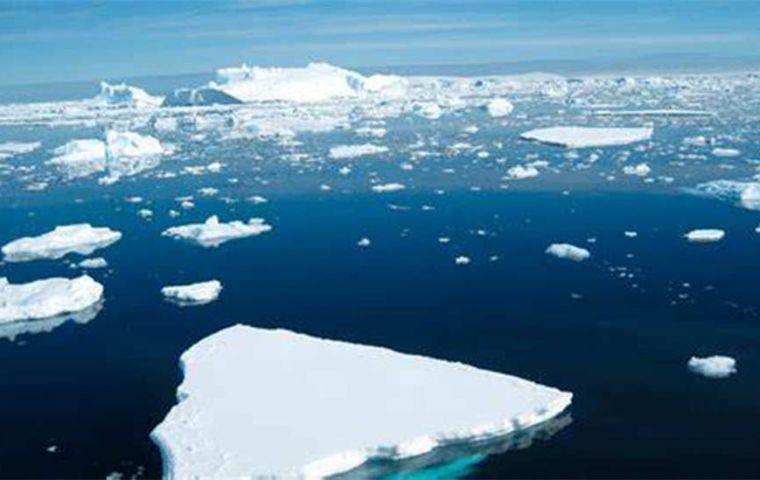MercoPress. South Atlantic News Agency
El Niño to cause irreversible thawing in Antarctica, study finds
 “Climate change is expected to increase the magnitude of ENSO, making both 'El Niño' and 'La Niña' stronger,” Wenju Cai explained
“Climate change is expected to increase the magnitude of ENSO, making both 'El Niño' and 'La Niña' stronger,” Wenju Cai explained According to an investigation by the Australian Government's scientific agency (CSIRO), the “El Niño” phenomenon would cause an increase in underwater temperatures that would cause irreversible melting of the shelves and ice sheets, it was reported on Tuesday.
After analyzing 31 models, the Australian agency found that the increasing changes in “El Niño” would result in a decrease in the temperature of surface waters and an increase in the temperature of underwater currents.
“This new research shows that a more intense ”El Niño“ may accelerate the warming of the deep waters of the Antarctic shelf, causing the shelves and ice sheets to melt faster,” explained Wenju Cai, the lead author of the study research conducted by Chinese and Australian experts.
“El Niño” and “La Niña,” which cause respectively warm and cold conditions, are part of the El Niño-Southern Oscillation (ENSO), a phenomenon related to the surface temperature of the oceans, atmosphere, and pressure and which has a major impact on climate, it was explained.
“Climate change is expected to increase the magnitude of ENSO, making both 'El Niño' and 'La Niña' stronger,” Wenju added.
However, this research, published in the scientific journal Nature Climate Change, pointed out that the increased ENSO variability slows the intensity of westerly winds along the Antarctic shelf.
As a consequence of this reduced wind intensity, water movement is reduced, resulting in warm waters in the deep ocean being unable to upwell, according to the CSIRO release.
“The warming around the edges of the floating sea ice slows down during this process, slowing the melting of sea ice near the surface,” said Wenjui.
Meanwhile, Ariaan Purich, a climate scientist whose research is focused on coupled ocean-atmosphere-sea ice interactions across the Southern Hemisphere who participated in the research, said that the effects of increased ENSO variability go beyond extreme weather hazards. “This could have broad implications for the global climate system, so continuing to understand how ENSO will respond to climate change is a critical area of climate research,” she said. (Source: DW)




Top Comments
Disclaimer & comment rulesCommenting for this story is now closed.
If you have a Facebook account, become a fan and comment on our Facebook Page!